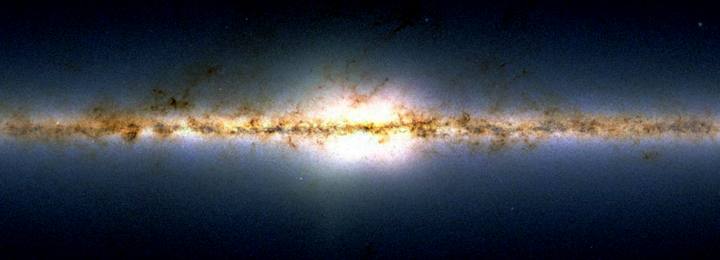And 2008 is that year, it looks like. With the completion of the Large Hardron Collider at CERN (the European Council For Nuclear Research) later this year, scientists will have at their disposal the largest and most energetic particle accelerator ever built. And these Russian guys are saying that with the TeV charges the protons will be traveling with, that it will be sufficiently powerful to create (if aimed properly) the first artificial wormhole (a.k.a. time machine). At least half the time anyway... The other half the time, they say, instead of a wormhole, we will get a mini-black hole. Which other physicists are saying will be no problem since black holes decay via Hawking radiation. Which unfortunately is unobserved and only theoretical at this point, but I digress. Black holes are no problem!
So now we have the wormhole. This is the future proto-travel-device? Not quite yet. It's still only going to be big enough to pass sub-atomic particles through.
 And in order to make it stable we would need to thread the worm hole with something that repels matter (the exact opposite of all normal matter) so maybe anti-matter or dark matter? That's still up in the air yet, also. And then when you have built all of that you are still left with a physical transporter, not a time travel device. One end of the wormhole still needs to be in the "past" and one in the "future" per se, for this to actually transport someone/something in time. And the only way we have figured to do that so far would be to attach the end of the wormhole to a neutron star, since they are so massively dense neutrons' significantly distort the fabric of space-time around them. And yeah, that seems like a viable platform for the future Grand Central Station. But anyway!
And in order to make it stable we would need to thread the worm hole with something that repels matter (the exact opposite of all normal matter) so maybe anti-matter or dark matter? That's still up in the air yet, also. And then when you have built all of that you are still left with a physical transporter, not a time travel device. One end of the wormhole still needs to be in the "past" and one in the "future" per se, for this to actually transport someone/something in time. And the only way we have figured to do that so far would be to attach the end of the wormhole to a neutron star, since they are so massively dense neutrons' significantly distort the fabric of space-time around them. And yeah, that seems like a viable platform for the future Grand Central Station. But anyway!So are you with me yet? Didn't loose you in the thought process? 2008 is it, folks. The is the beginning of the greatest adventure and dreams of mankind. Baring any future complications with the LHC accelerator, we should be hosting our great-grandchildren as house guests sometime soon (if they choose to visit, that is, but who wouldn't want to check out our world as it is now?) And don't forget, smart money is also saying to buy some land in Geneva for new hotels now, while the buying is good.
"Between too early and too late, there is never more than a moment." Franz Werfel (1890 - 1945)


1 comment:
So, if we anchor one end of the wormhole in a finite moment in the past, is not the other end anchored in a specific moment as well? ie, we can travel from now(2030, 2-18-08) to, say, 1300 on 2-14-08. But an hour from 2030, 2-18-08, it is now 2130. Does the one end of the wormhole follow the present moment?
my relativity is a bit weak, I guess...great post, as always!
wingnut
Post a Comment